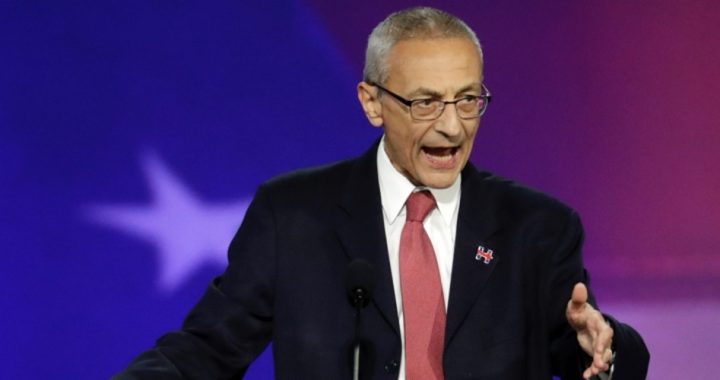
For several months, Americans have been treated to a steady diet of allegations that President Donald Trump’s campaign colluded with the Russians in an effort to engineer his victory over Democratic Party opponent Hillary Clinton. The indictment of Trump campaign chairman Paul Manafort on October 30 for failure to register as an agent of the Government of Ukraine by Special Counsel Robert Mueller has revealed, however, that the more definite and serious ties with the Russian government involve Hillary Clinton and her husband, former President Bill Clinton.
When Hillary Clinton took over as secretary of state for President Barack Obama in 2009, she promised a “reset” of relations with Russia. She was among those in the Obama administration who had to approve of the sale of Uranium One, an international uranium mining company headquartered in Canada (with operations in the United States), to the state-owned Russian nuclear energy corporation Rosatom, an action that essentially allowed the Russian government to take over one-fifth of American uranium assets. Uranium, obviously, is used in the production of nuclear energy and nuclear weapons.
Uranium One paid the Podesta Group lobbying firm $180,000 to ensure the approval of the deal on the part of the U.S. government, according to the Center for Responsive Politics. The Podesta Group was formed in 1988 by Hillary Clinton’s campaign manager, John Podesta (shown), and his brother Tony. Despite his work as a lobbyist for Uranium One, Tony Podesta failed to register as required under the Foreign Agents Registration Act (FARA). Tony is also under investigation for failure to register as a lobbyist representing the European Center for a Modern Ukraine.
Bill Clinton was paid $500,000 for a speech in Moscow a mere three weeks after Rosatom began a public bid for Uranium One. Rosatom is essentially a Russian government ministry, ranked fourth in the world in uranium production. Its chairman is Boris Gryzlov, who served eight years as speaker of the the Russian Duma (parliament). He is still considered a key insider of the Kremlin. Clinton friend Frank Guistra owned Uranium One, and donated in excess of $25 million to the Clinton Foundation. In fact, Peter Schweizer, author of Clinton Cash, wrote that nine investors in Uranium One gave a total of $145 million to the Clinton Foundation. In 2000, when the Clintons left the White House, they had millions of dollars in legal debt. Since then, they have earned in excess of $130 million, mostly earned through speaking fees, such as the remarks Clinton made in Moscow on the heels of the Uranium One deal.
As noted by the Daily Caller, “The sale of Uranium One to Russia today is the subject of at least three separate congressional committee investigations trying to determine if Bill Clinton and the Clinton Foundation received large financial gifts from Russians and from Uranium One’s owner and CEO. The committees are trying to determine if the gifts paved the way for the sale.”
This raises questions as to which presidential candidate really had closer ties to the Russians. It also raises the issue of national security — if the Russians under President Vladimir Putin are such a serious threat to the United States as the Democrats allege, then why did their candidate, Hillary Clinton, approve of selling them uranium while she was secretary of state?
Paul Manafort was working for the Podesta Group when he lobbied in support of Viktor Yanukovych, the pro-Russian president of Ukraine. After being deposed by the Ukrainian parliament, Yanukovych took asylum in Russia. None of the indictments lodged against Manafort involve his time as campaign manager for Trump, but his time working for the Podesta Group.
After Mueller announced the indictment against Manafort for failure to file as a foreign agent, it was revealed that Tony Podesta had also not filed. Representative Devin Nunes (R-Cal.), the chairman of the House Intelligence Committee, expressed concern about Podesta’s lobbying activities for Uranium One and his failure to file as a foreign agent, as required by law.
Senator Charles Grassley (R-Iowa), who chairs the Senate Judiciary Committee, responded to the indictment of Manafort: “It’s good to see the Justice Department taking seriously its responsibility to enforce the Foreign Agents Registration Act. I’ve been raising questions about lackluster enforcement of this foreign influence disclosure law for years now, regardless of the administration or political party.”
The statute in question, 22 USC section 611(c), defines an agent of a foreign principal as “any person whose activities are directly or indirectly supervised, directed, controlled, financed or subsidized in whole or in major part by a foreign principal.”
Senator Grassley noted, “The dirty little secret is that lots of people across the political spectrum in Washington have skirted their FARA registration obligations for years with little to no accountability.”
An even dirtier little secret is that there are far too many individuals in the U.S. government or high-ranking political officials who appear to have little regard for the well-being of the United States and its people.
Photo: AP Images



